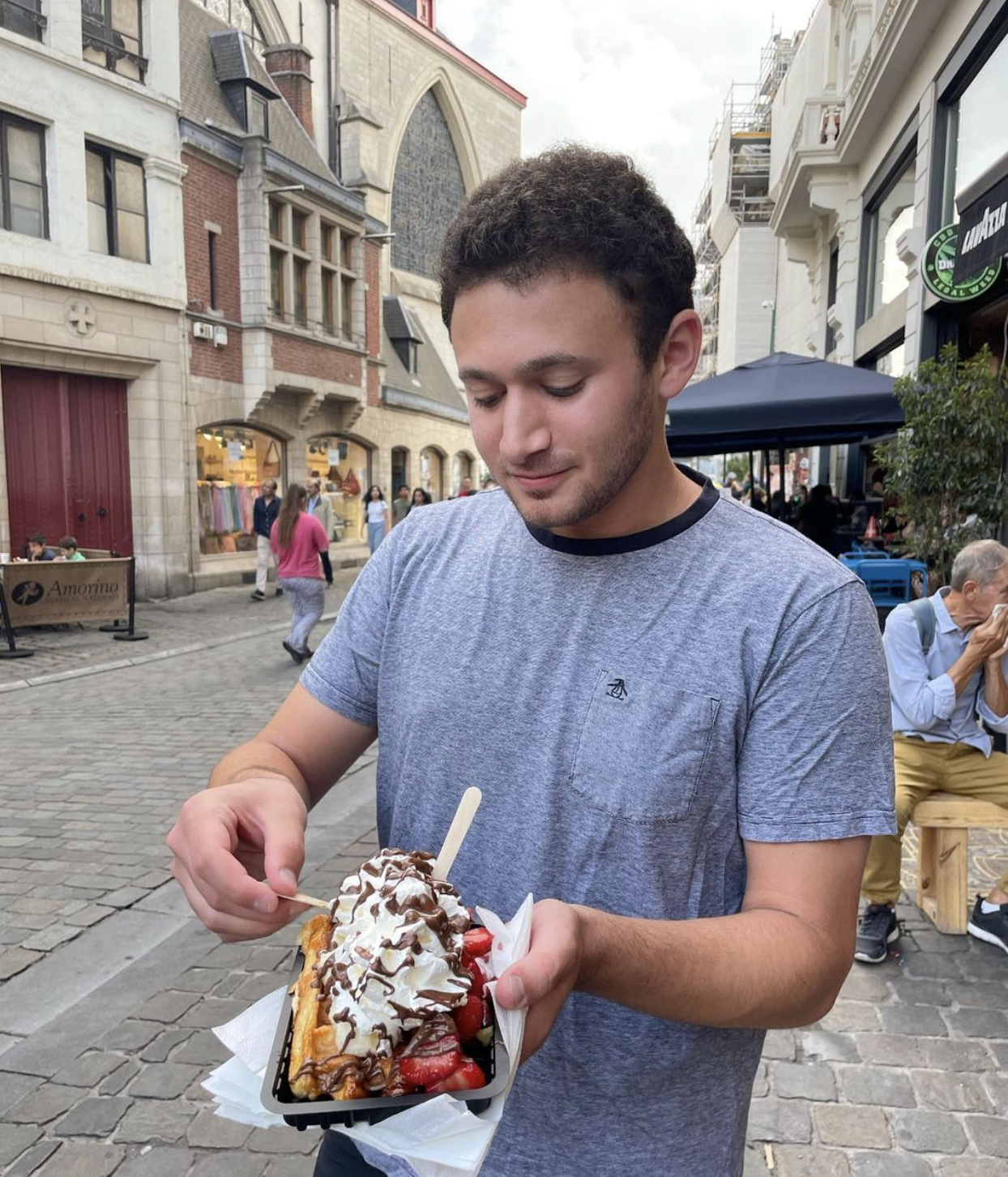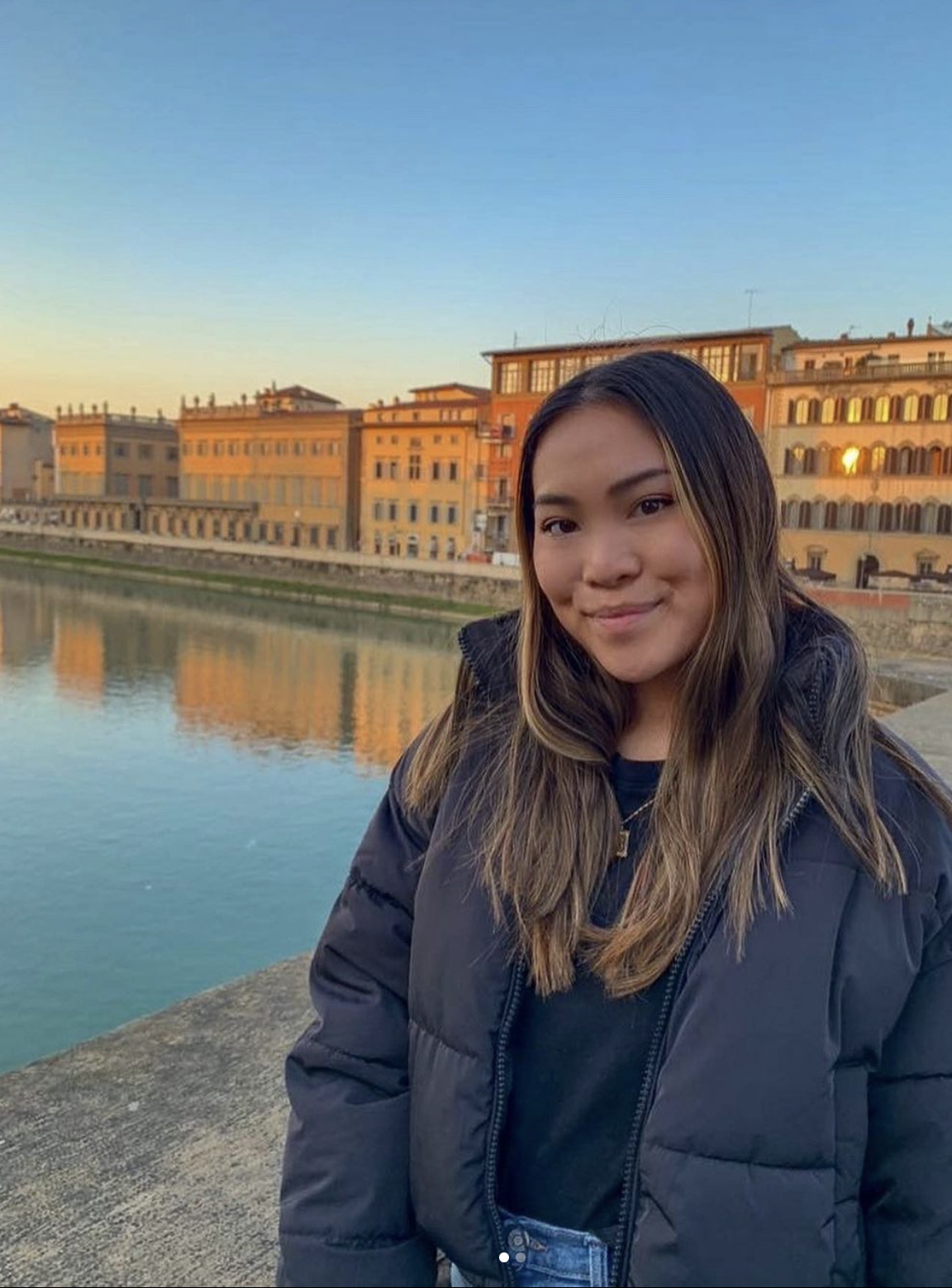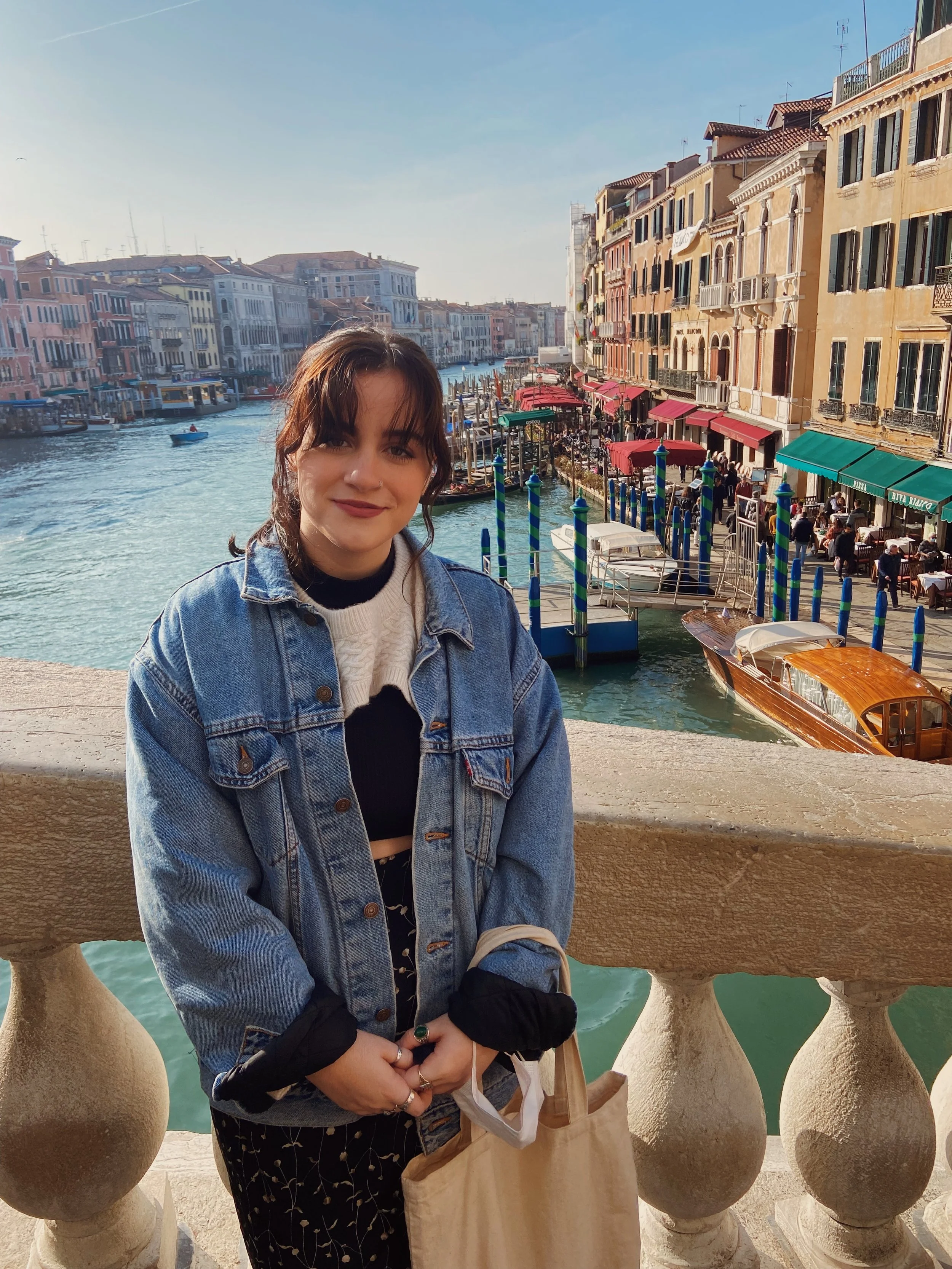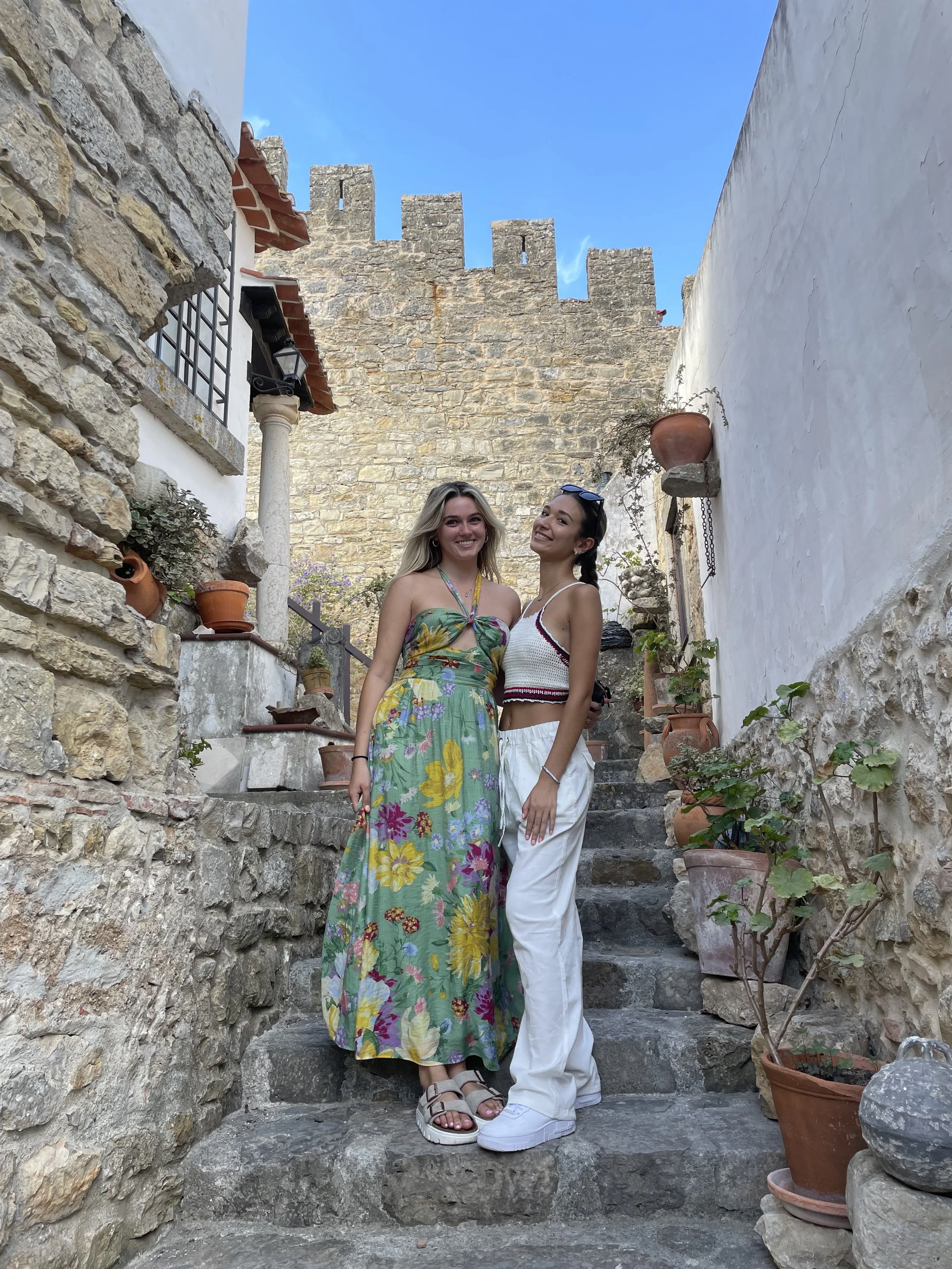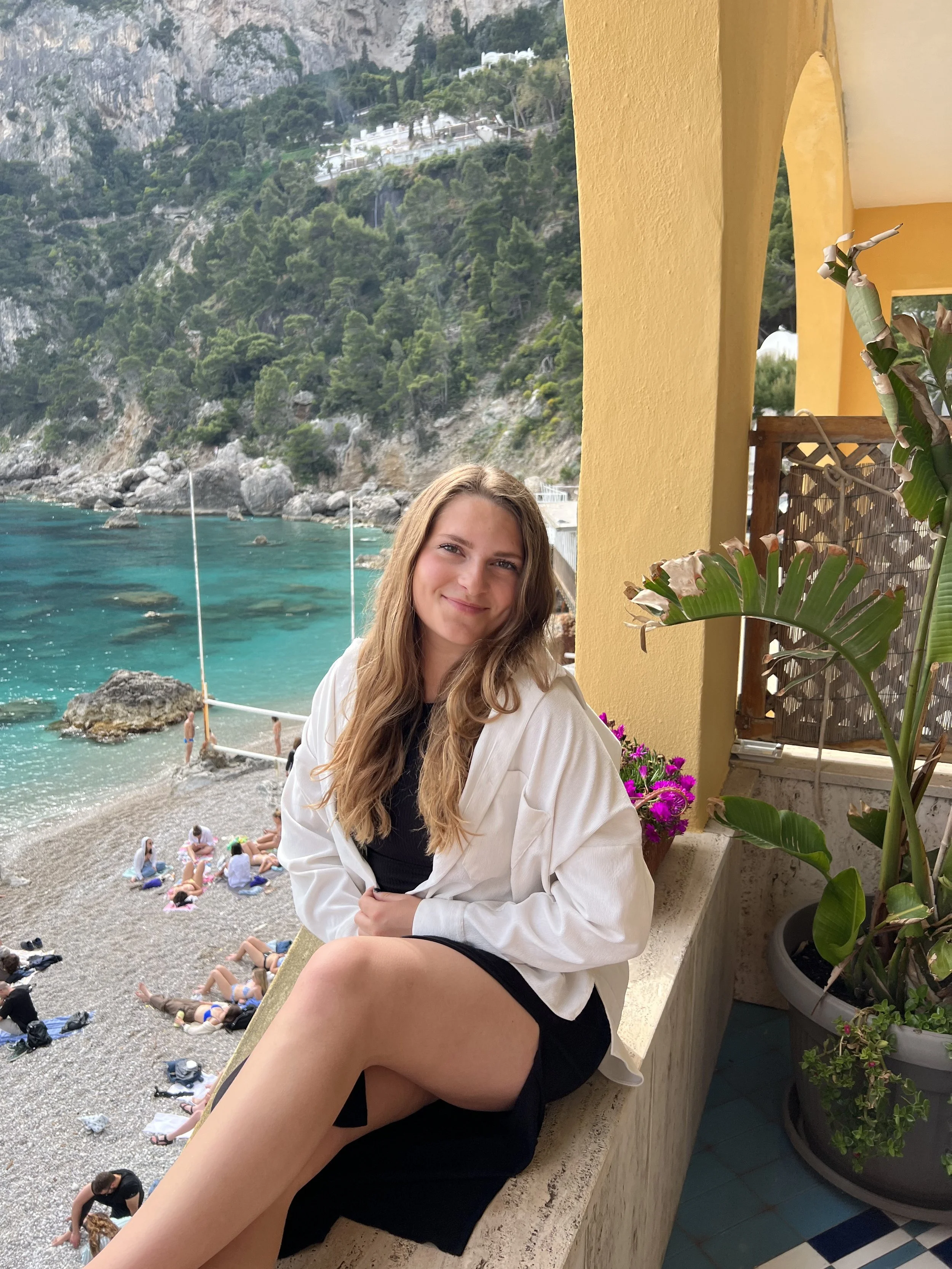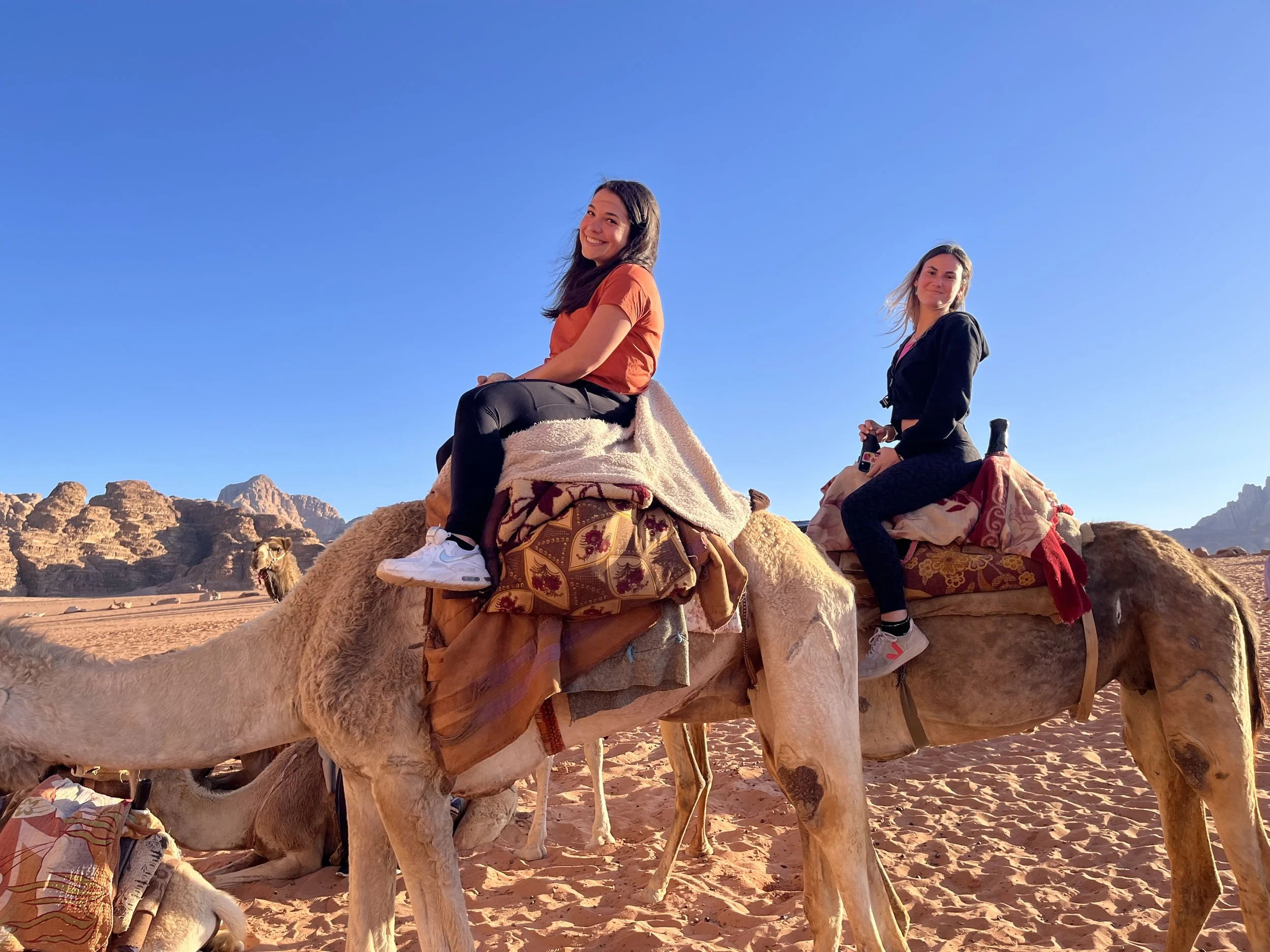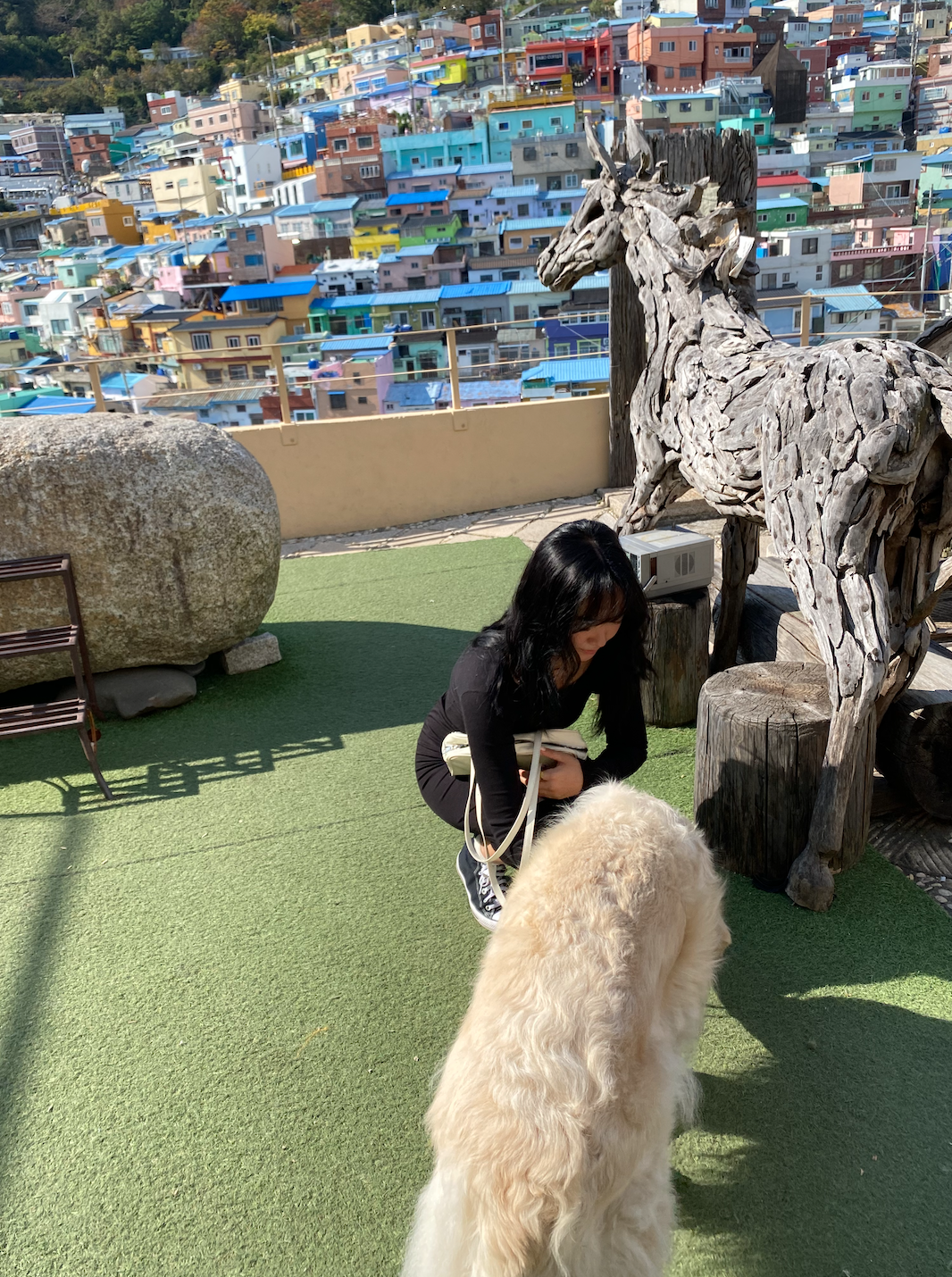Packing, Planning, and Plenty of Pics
Written by: Sydney Brodsky
Studying abroad is a great way to combine academic learning and cultural immersion. This summer, I fulfilled my dream of studying abroad at the London College of Fashion. The experience was incredibly eye-opening despite the challenges of preparing, packing, adapting, and navigating the curriculum. Below, find tips from world-traveling students to make the best of your experience abroad.
LONDON
London is one of the biggest fashion cities in the world. This program emphasized all crucial components of the industry, such as strategies for marketing or branding a business, styling a photo shoot, and writing fashion media pieces. When preparing for this program, taking all core classes beforehand and saving electives for the program was essential. Developing a plan of study was beneficial as I had additional electives left to study abroad while still being able to graduate on time.
I studied abroad in London with my roommate Maya. Based on our advisor’s information and previous student experiences, we expected to attend class 3-4 times a week, so we were surprised at having classes five days a week. “Although this was extremely more difficult than expected,” Maya stated, “I am glad I was able to be immersed in a new side of the fashion industry.” We adjusted our heavy work schedule and found a balance between completing our work and having time to explore.
LUXEMBOURG
Alex Goldstein is currently abroad in Luxembourg. Since Miami University in Ohio owned the school he attended, his course load was similar to back home. Goldstein is ecstatic to be able to travel to Europe; however, traveling outside of a smaller city like Luxembourg proved to be a challenge. Goldstein spent numerous nights scouring the internet to find the perfect flight and found Kayak, Booking.com, and Expedia effective in his search. However, the overwhelming number of options was hard to navigate, so he recommended planning trips ahead.
He decided to take French, which was extremely challenging for him, and ended up failing the class. He regrets this decision to try and learn an entirely new language when the curriculum was highly accelerated and the teacher was not accommodating. When preparing for his trip, he was so nervous he packed everything he could need. He admitted he packed incorrectly: “My one piece of advice is to tell yourself: you do not need to take all those shirts.”
FLORENCE
Sage O’Brien was in Florence for five months studying psychology. The program heavily focused on trips and workshops designed to embed students in the culture. O’Brien decided to go alone to help her meet and bond with fellow travelers. Living in a region with a different language was challenging, and she suggested taking language courses when deciding to study overseas.
The most important thing she learned in Florence was to talk to locals and find places that were more authentic and not as popular. “Don’t be afraid to talk to people from there! It makes the experience so much more valuable,” she says. As a food lover who wants to eat like a local Italian, she found a great hole in the wall after asking some locals and spent every meal eating there.
Design and Merchandising student Jayna Cabry was also in Florence at Accademia Italia, studying in their fashion merchandising program. Cabry emphasized the most challenging aspect of studying abroad was getting used to being so far from home, especially with the inability to speak the language. The time difference and being homesick were an adjustment at first. Finding the right time to talk to friends and family was difficult; therefore, she recommended setting a time to catch up at least one or more times a week.
If you want to live in a new country, make the most of the experience. “Even if you are scared, push yourself and be nervous,” said Jayna, “It is worth the experience and a once and lifetime opportunity.” Being content with living in surprise and being open to new things will allow you to make the most of your experience.
PARIS
Nora Haslach did a dual-city program at the Foundation for International Education in Paris and London. She spent a month in each city but preferred Paris for its food and scenery. She had to find housing in Paris, which was extremely overwhelming. Searching for the most affordable and sensible option for living space was time-consuming. She investigated Airbnb and extended stay hotel websites. Ultimately, she picked an AirBnB near the school with her desired accommodations.
One of the difficulties with studying abroad was adjusting to the foreign grading and teaching system. French and British grading systems use a scale from 1 to 5 scale. Obtaining a 5 is nearly impossible and is the US equivalent of receiving an A- or A. Her advice is to communicate with teachers; thankfully, as a visiting student, her professors translated the grading system to the American equivalent.
PORTUGAL
Olivia Aubele did a one-week intensive leadership ICA abroad program in Lisbon, Portugal. During the week, they visited many cities, such as Porto, Óbidos, and Sintra, while meeting business leaders in each area. Aubele still had some schoolwork in the program that dealt with leadership development skills and activities. She stated: “It was difficult to turn my work in on time, so time management is critical when going abroad in a shorter time period. A strategy that helped me was keeping a checklist of all assignments.”
MADRID
Mirella Strieleman spent her spring semester at the University of San Diego Madrid Center in Madrid, Spain. She explained the classes were much harder than anticipated and lacked immersion in Spanish culture. Looking back, she wished to study in a different location because she knew more people studying abroad in Rome and adjacent cities. She lived in a homestay, a residence local to her home university, with people in study abroad-specific programs. As a result, she found it more difficult to meet locals or people from different countries.
She loved traveling and suggested, “Having a loose plan of all the things you want to do helps, so you make sure you go to all places and do not get overwhelmed.” Before every trip, she and her friends sat down and made a must-see list of activities and sights in each location. Overall, she kept a positive attitude about being in a new culture and opened herself to trying exotic dishes outside of her comfort zone.
TEL AVIV
Maya Horwitch was at Tel Aviv University for the entire spring semester. The workload was easier than her regular college program, which was what she expected based on prior study abroad meetings. Before going, she took a Hebrew class, which helped the language barrier and enabled her to be immersed in the culture quickly. The most challenging thing about the language was reading signs and figuring out directions. Horwitch’s advice is to map out your itinerary to prevent getting lost. Also, she highlighted the expenses of eating out: “We had no kitchen, so we had to eat out every day. Looking into what your program provides before so that you can save money and budget as much as possible for your trip will be extremely helpful.”
SOUTH KOREA
Jiseon Lee spent her fall semester in South Korea. She is in the Hanyang program studying fashion, which was a difficult adjustment due to the diverse and visual teaching style. Immigrating to the US at a young age, Lee expressed her joy in experiencing the Korean education system. While at Hanyang, Lee said, “Now, I can adapt so much easier to different things and take things I learned and apply them to other things when returning to the US.” Also, she recommends having the opportunity to have a friend or person you know. “When navigating a new country, some familiar faces would have been comforting.” Jiseon eventually put herself out there with fellow people in her program, and once she did, she felt less alone.



